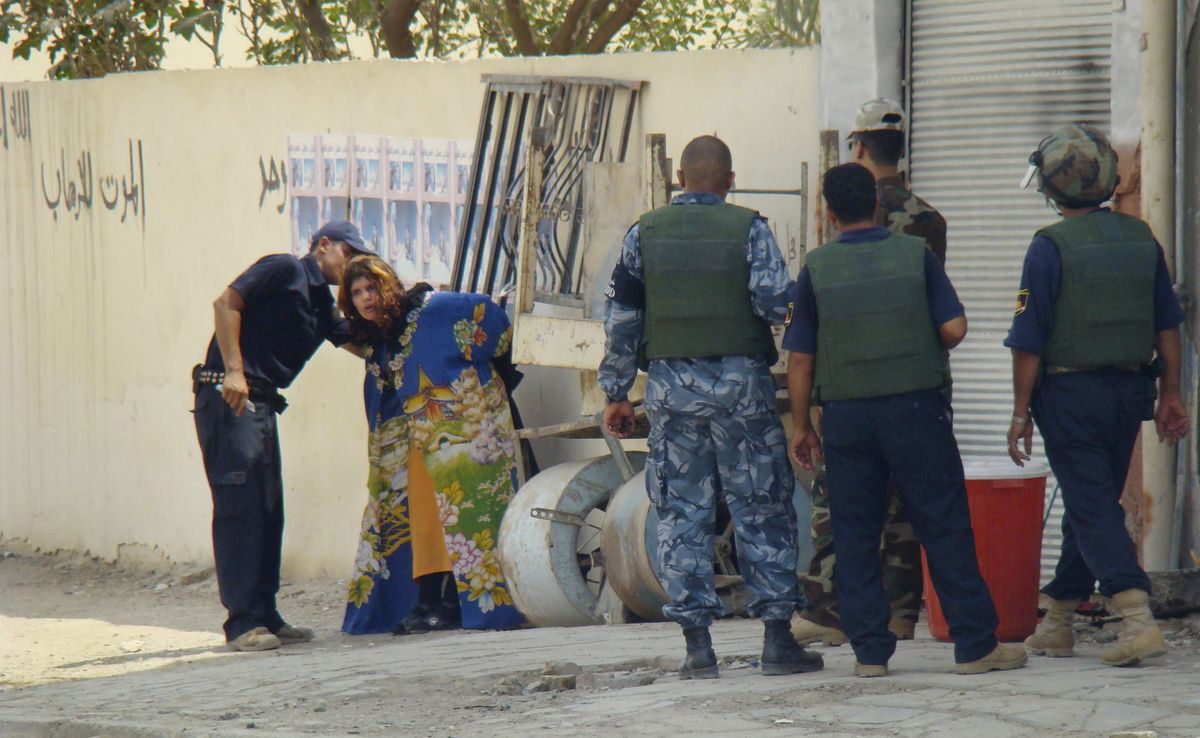Young suicide bomber found dazed, wandering
Iraqi girl, married at 14, tells confused tale

BAQOUBA, Iraq – The 15-year-old girl had the chubby cheeks of a child who hadn’t lost her baby fat when she was arrested Sunday by an alert policeman. Around her chest was a vest packed with explosives. The policeman chained her to the bars of a window, stripped off her dress, found the vest and deactivated the bomb. Had he not intervened, Rania would have been this year’s 31st suicide bomber in Iraq.
A day later, Rania seemed in a daze as she spoke about the people who put her up to it: the relatives who forced her to don the vest and apparently drugged her, her husband, whom police accuse of being a member of the group al-Qaida in Iraq, and her mother, who seemed to play a central role in turning Rania into a human bomb but whom she looked to as a rescuer.
Sitting in the office of the Ministry of the Interior, Rania narrated a tale that at times was wrenching, at times highly improbable. She said in an interview Monday with McClatchy Newspapers that she didn’t know that the wired vest was a bomb. But she also said she was suspicious from the moment her husband’s female cousins told her to wear it. The police would not provide her full name, nor would she in their presence.
Rania has rheumatism, and her cousins told her that the vest would help her back, she said.
“I asked, ‘Is it explosive?’ and they said ‘No,” ” she said, her hair and body cloaked in the long, black abaya that many Muslim women wear to cover themselves. “I asked, ‘What are these wires?’ They told me it won’t explode. They said, ‘Don’t touch anything. Don’t play with the wires, and it will not explode.’ ”
By Rania’s account, the older women gave her peach juice, which made her dizzy, and they walked her halfway to the square. For three hours, she said, she wandered side streets trying to find her mother to give the vest to her because she didn’t know what to do, before police detained her.
“Thank God I got rid of this vest,” she said. “I was afraid I would explode.”
According to Brig. Gen. Abdel Kareem Khalaf of the Interior Ministry, who arranged the interview, the vest had a yellow detonator button, covered with duct tape, but Rania said that she didn’t know it was there.
As she told her story in Khalaf’s presence, she looked bewildered. Rania, a child bride, is from a poor family in the capital of Diyala province, north of Baghdad. She quit school in the fifth grade and married at age 14. She can barely read or write, and her accent is thick and difficult for an outsider to understand.
According to her mother, Bassaad Salman, who sat with Rania and coached her during the interview, Shiite Muslim militias had displaced the Sunni Muslim family. Salman said that Shiite militias had kidnapped Rania’s father.
Police said, however, that the single mother of five was an “emira,” a princess or leader in al-Qaida in Iraq. She said that she had no connection to the group.
Their story has varied with each telling, according to police. One day after telling the police that she had no idea who the women were who put the vest on her, Rania told McClatchy that they were her husband’s cousins.
By Salman’s account, Rania’s husband needed money for fertility treatments and planned to borrow it from the same cousins who put the vest on Rania, her mother said. The man wasn’t there when police went to her home.
Rania admitted that she hadn’t wanted to get married.
“I didn’t accept it out of choice. It was against my wishes,” she said. “My mother and uncle wanted it. … But he was good to me,” she said.
She said that she and her family had discovered recently that her husband was with al-Qaida in Iraq, which is thought to be behind most of the car bombs and suicide bombings directed at civilians.
“I didn’t know, but in the last few days I learned that he was,” she said. She said she didn’t know whether her husband had planned for her to die that day. But she insisted that he cared for her.
“He didn’t know she was going out,” her mother quickly corrected.
“He didn’t know I was going out,” the girl echoed.
Rania looked down and placed her head in her hands. She had spent all day being questioned by Iraqi forces and coalition forces.
“I didn’t want to explode,” she said. “I didn’t want to die.”
“I die 100 times when I think about this,” her mother added. “I think if she had cancer it would be better than to die like this.”